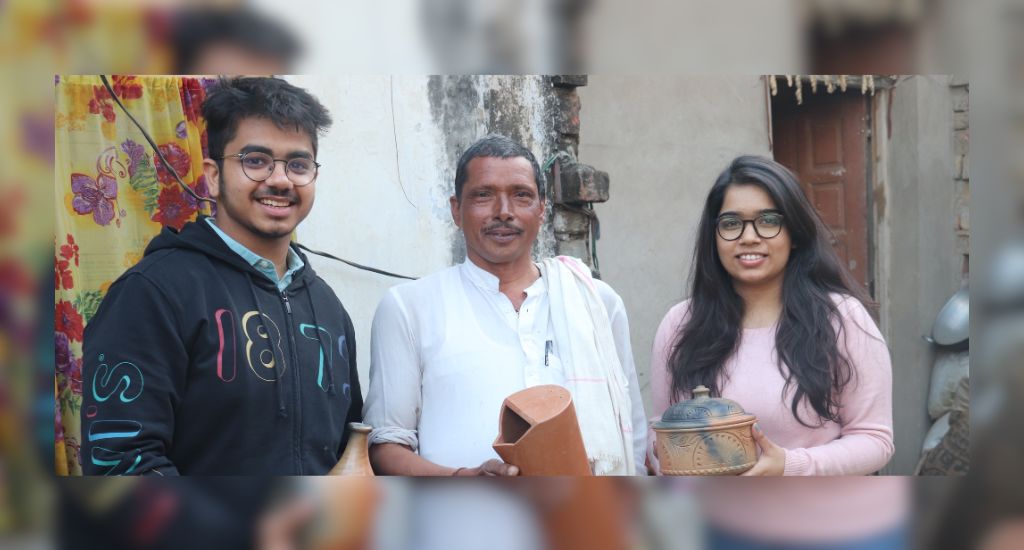
Students shape a future in terracotta pottery
Two college students start Mittihub, a platform selling terracotta pottery, to improve the livelihood of traditional potters, while offering fine products to customers across India and beyond.

Two college students start Mittihub, a platform selling terracotta pottery, to improve the livelihood of traditional potters, while offering fine products to customers across India and beyond.
With several traditional art forms dying and those that remain unappreciated, life had become a bed of thorns for Maya Ram. He could never avail formal education owing to the financial crunch and lack of access to quality education near his village in Indergarh tehsil of Rajasthan’s Bundi district.
Ram (25) learnt terracotta pottery early in his childhood – a skill passed on to children of his community through generations.
“My parents used to do this work and still managed to feed our joint family. But I really struggled as I barely had a buyer for my crafts,” Ram lamented.
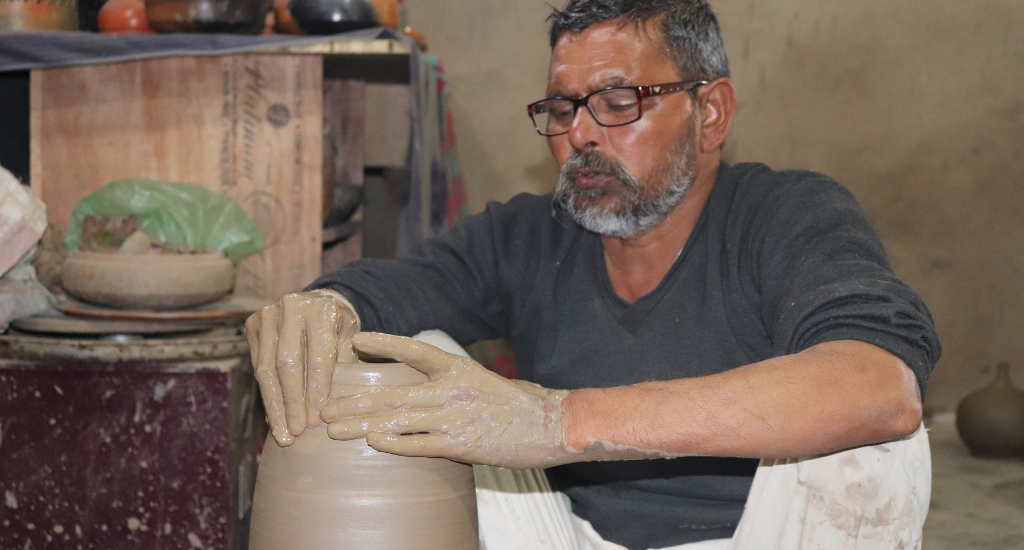
While terracotta pottery seemed to be on a decline, thanks to an initiative by students, Ram now makes earthenware such as matkas, kullhad, handi and tawa among others. Now his traditional kitchenware and decorative pieces – which are then adorned and painted by his wife – bring him more money.
Terracotta pottery is one of the oldest crafts in the world. India is home to thousands of skilled artisans who have been creating marvellous terracotta masterpieces for generations. Potters in the villages of several states like Rajasthan, Gujarat and Madhya Pradesh among others practise this art and proudly carry forward their heritage.
However, in a technologically advanced time when machine-made art products easily outperform the hand-made delicacies of the artisans, many terracotta practitioners have been forced to abandon their family tradition and migrate to cities in search of sustainable employment opportunities.
Also Read: The wheels are turning for migrant potters
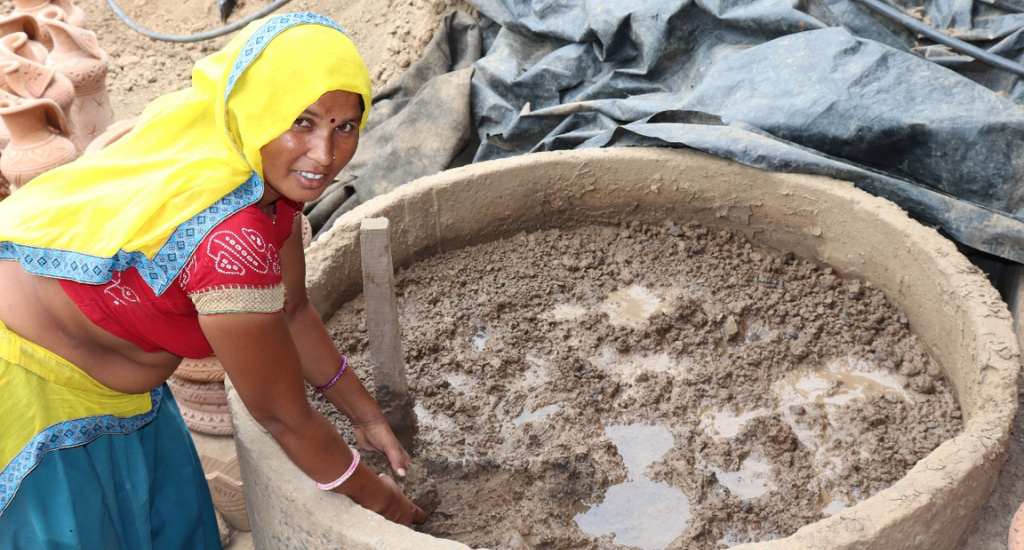
Artisans’ reluctance to pursue the art form stems from the lack of institutional support for this profession and the inability to generate revenue as the raw products they create are not in demand.
It was just a few months before the pandemic struck that a student duo Abhinav Agarwal and Megha Joshi, undergraduate students in entrepreneurship, launched a digital platform called Mittihub as part of their college project.
“Megha and I had visited Alwar that year and were really mesmerised by the vast range of beautiful terracotta pottery done by local artisans,” Agarwal recollected. “But we could also feel the desperation among the artisans, who wanted to leave the business entirely.”
The duo travelled to several other north Indian states and met with many artists who wanted to continue this art form but needed a means to do so.
Also Read: A young woman engineer spurs hope for pottery in Kashmir
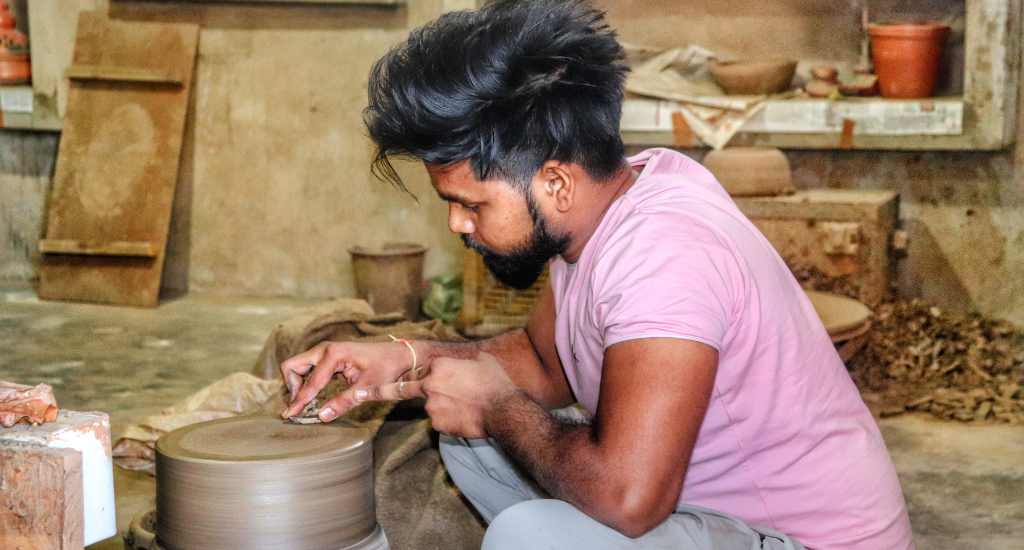
Formally registered in January 2021, Mittihub is much more than a mere digital portal offering a sale of terracotta home decor, kitchenware, planters and tableware made by rural artisans.
“Through Mittihub, we connect with the artisans, train them to refine their products and make them appeal to consumers across Indian cities and outside the country,” Joshi explained.
The duo, both in their early 20s, with the help of their newest team member, has been conducting pottery workshops where older and experienced artisans teach younger artisans from the community and also learn from foreign art experts and their techniques to modernise this traditional art form.
Having been connected with the team almost from its inception, Maya Ram is one of the beneficiaries of this initiative.
Also Read: In Gandhi’s Gujarat, potters keep shine on Hindu-Muslim amity
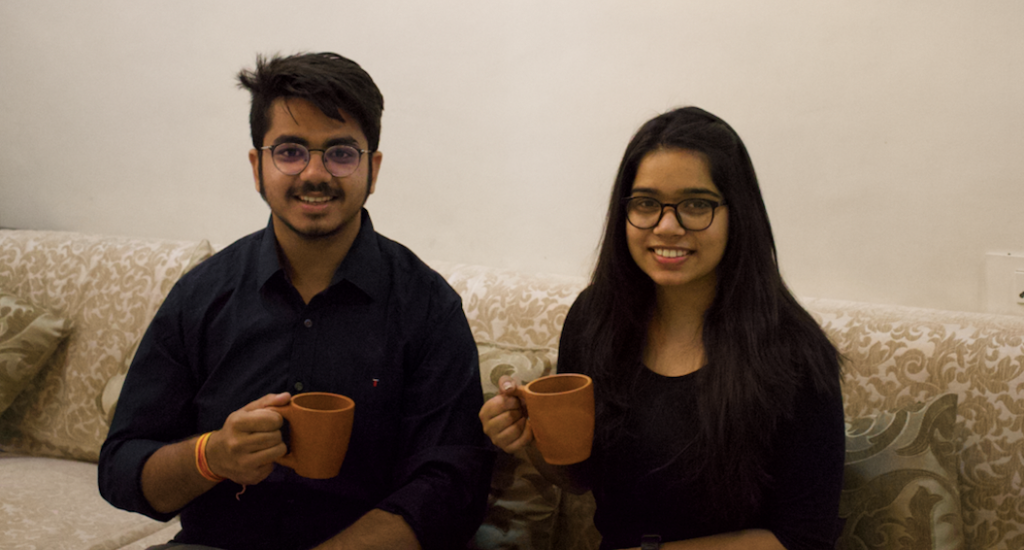
“My technique and my products have become more refined and so has my income,” Ram said with a grin, as his income in the past two years has increased threefold.
“Apart from my traditional pottery, I have also started making decor pieces with a touch of terracotta,” Ram said.
Terracotta pottery owes its success to the fact that it is done using a form of clay – generally found in villages – lasting durability, vibrant colours and easy-to-mould nature which makes such pottery a popular choice for sculptors and architects.
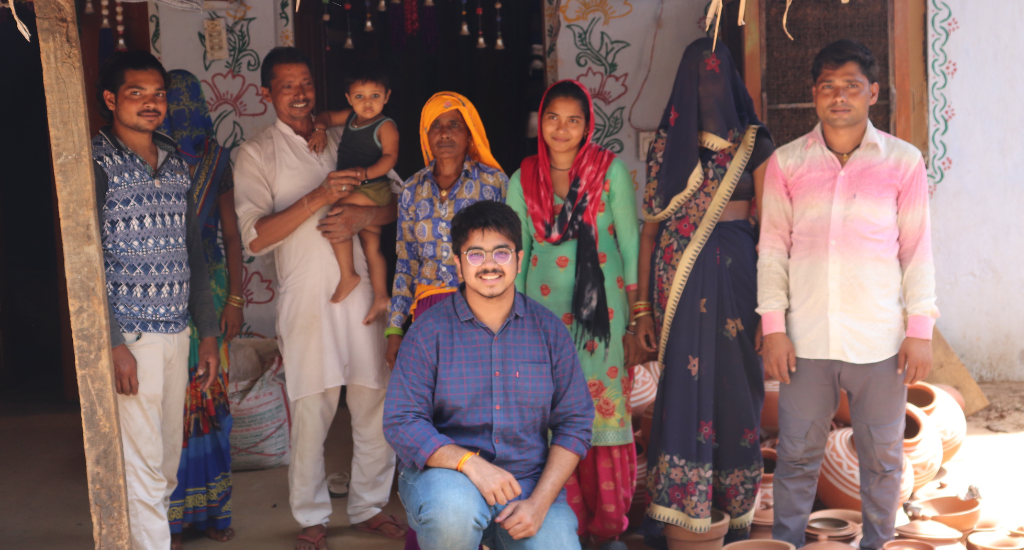
As of now, nearly 30 families of artisans from Rajasthan, Haryana and Uttar Pradesh regularly make finely finished and even disposable products that are sold through Mittihub. The artisans directly receive 50 percent of the total profit share as there are no middlemen or product dealers in the process.
While Ram couldn’t get any happier after he bought his wife a smartphone this year and started saving for their toddler daughter’s education, Agarwal believes that prioritising artisans’ needs is crucial for preserving the rich art forms of this country.
Also Read: Youth revive traditional black pottery of Manipur
Jyoti Thakur is a Delhi-based independent journalist who covers gender, environment and social justice. She was a Rural Media Fellow 2022 at Youth Hub, Village Square.